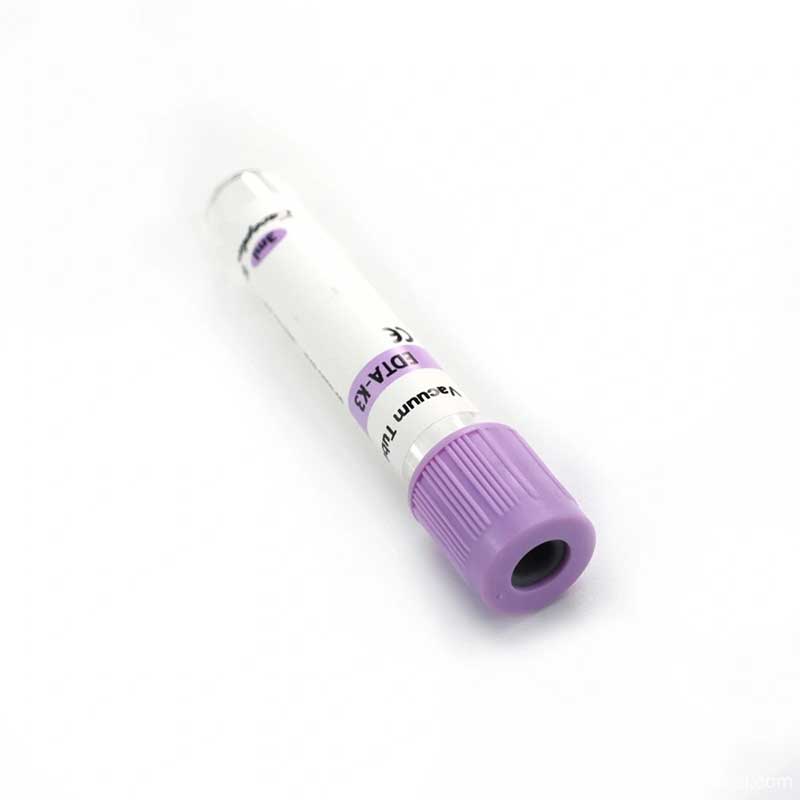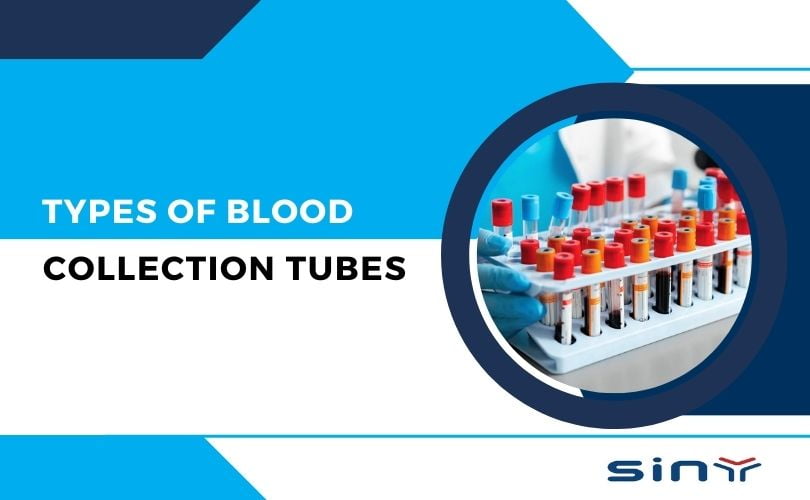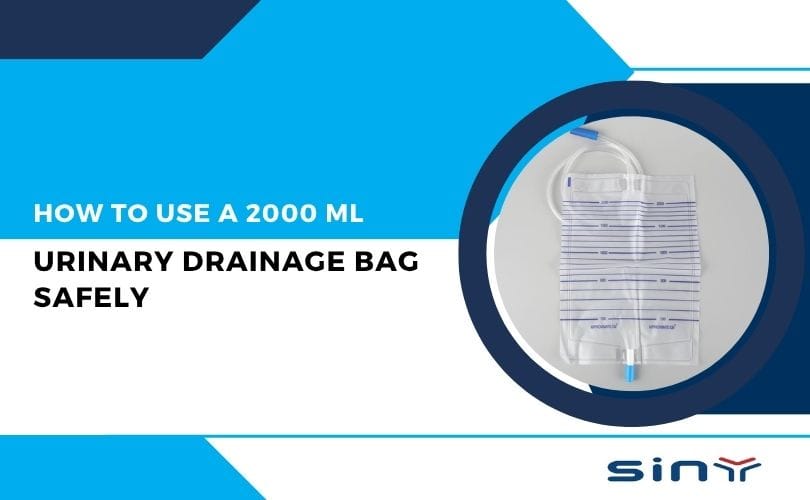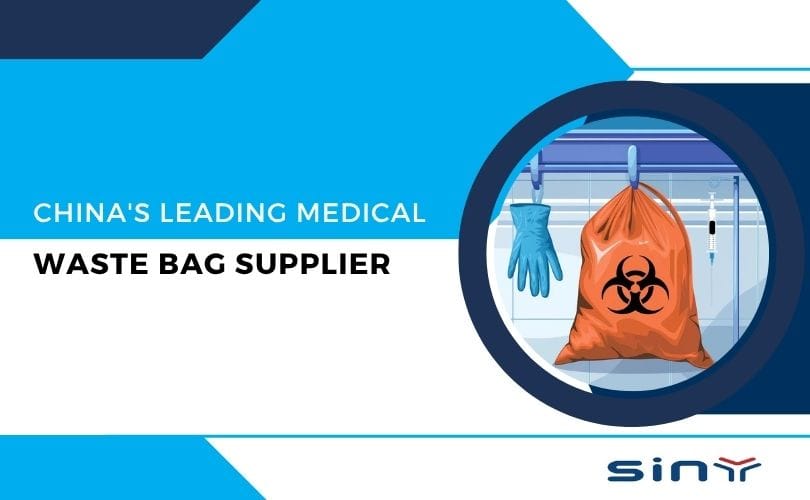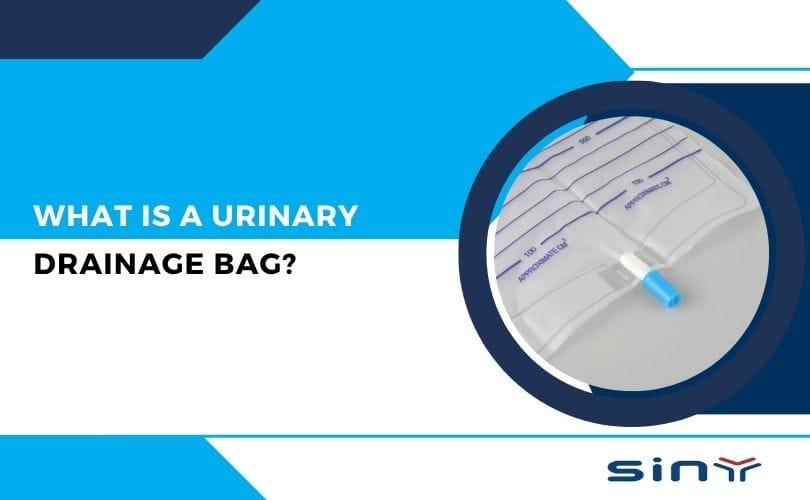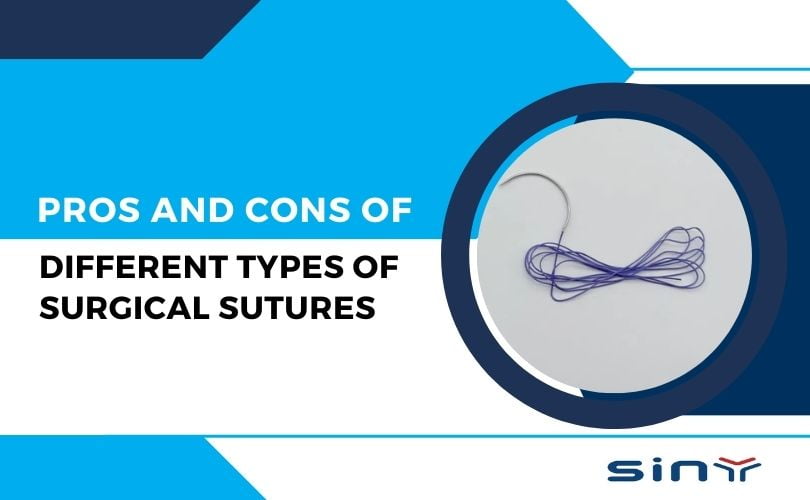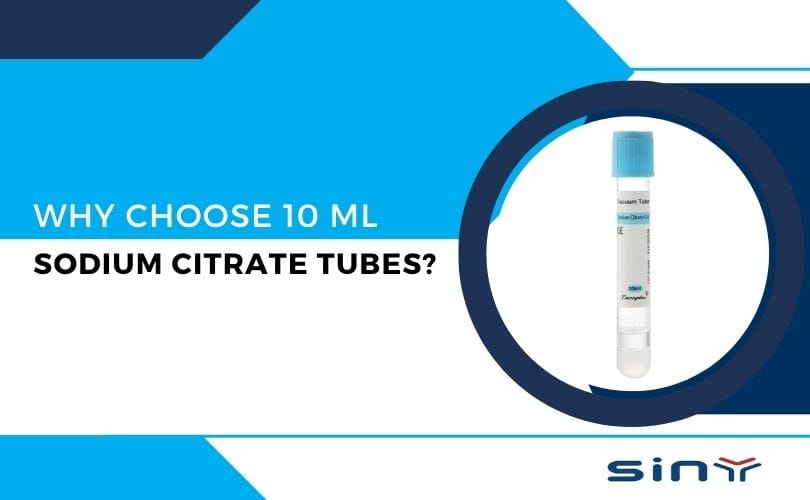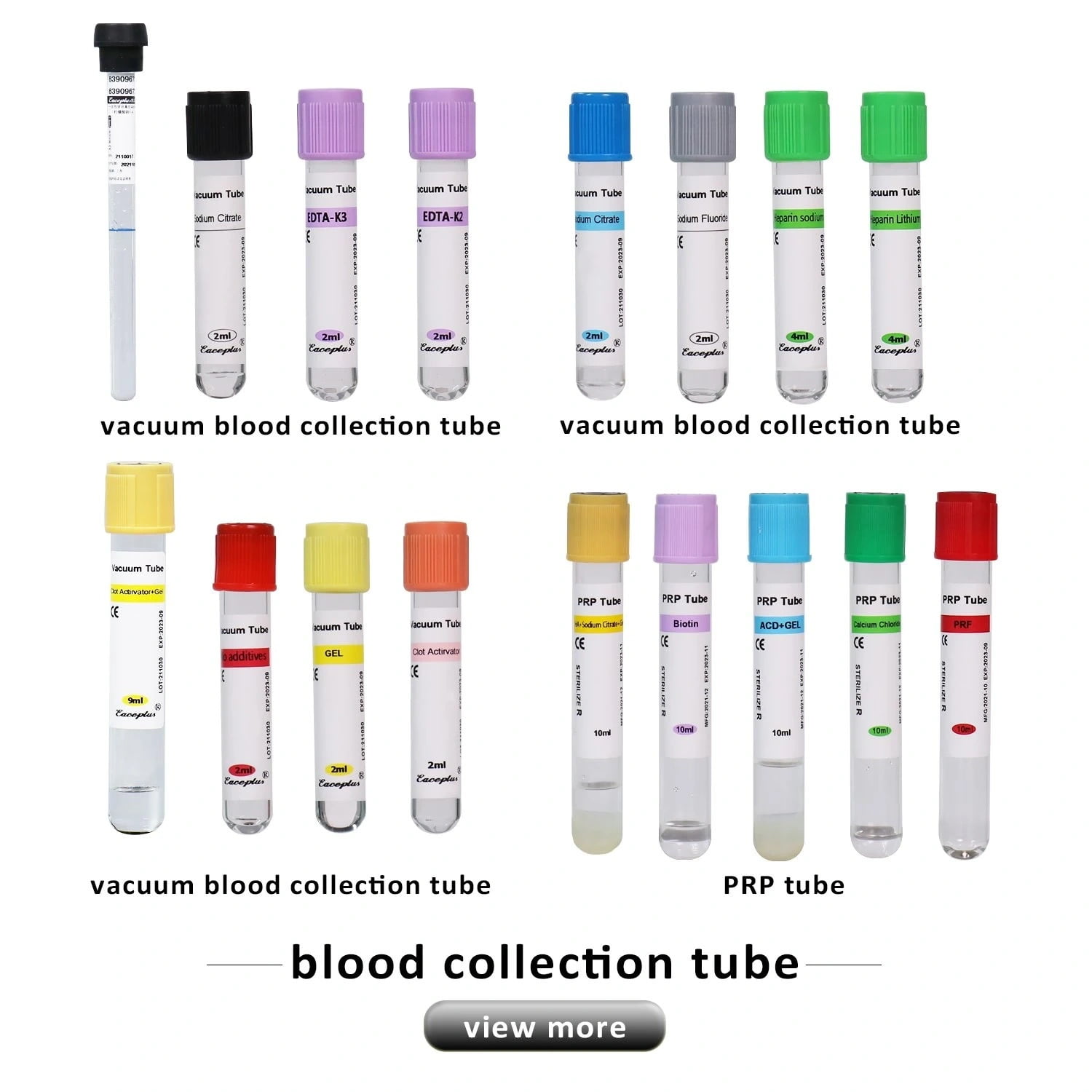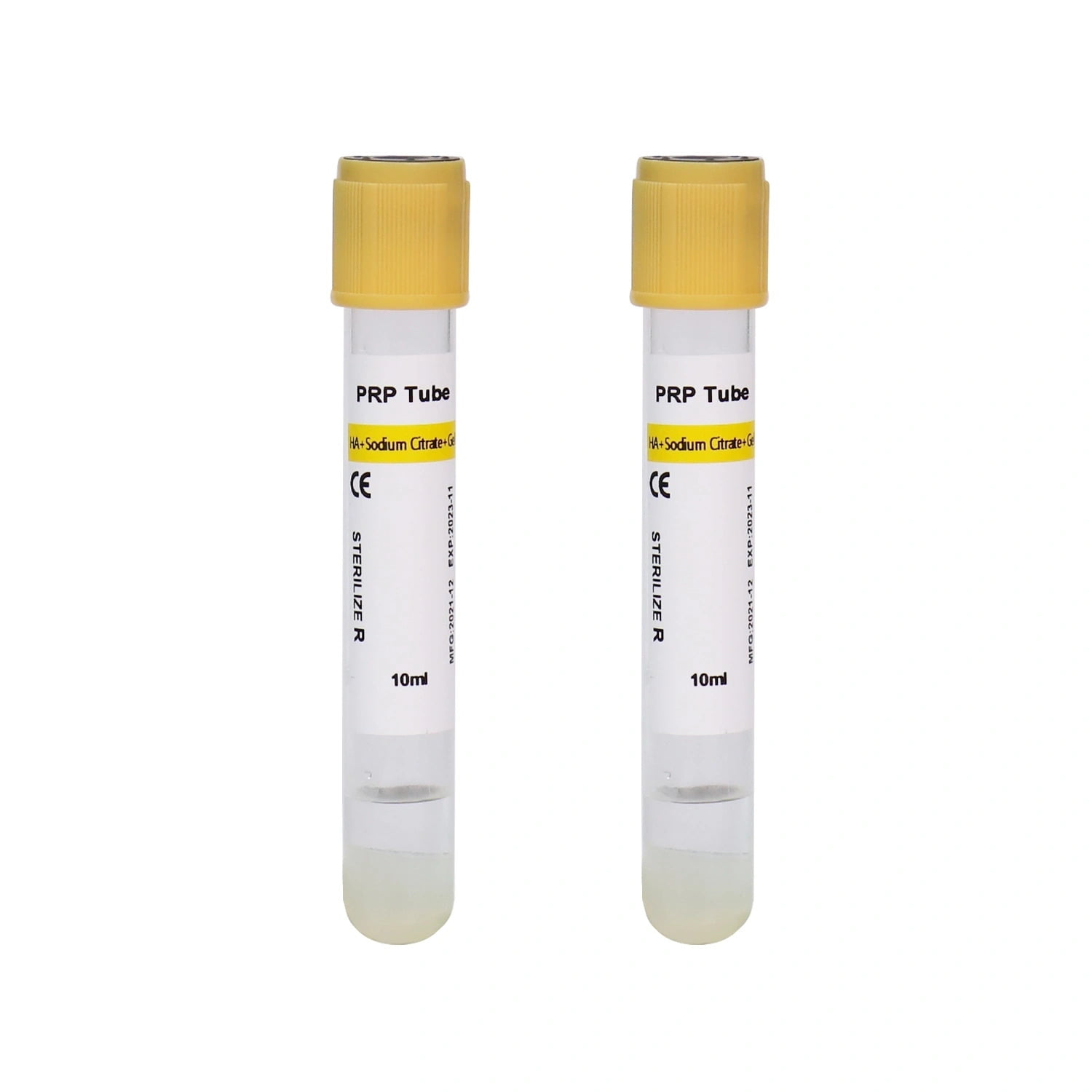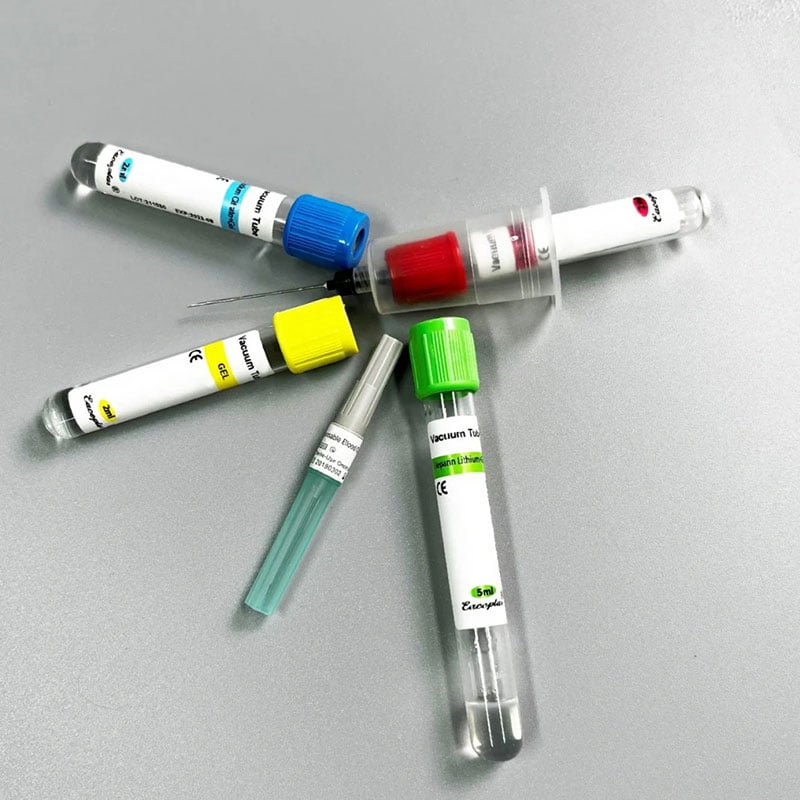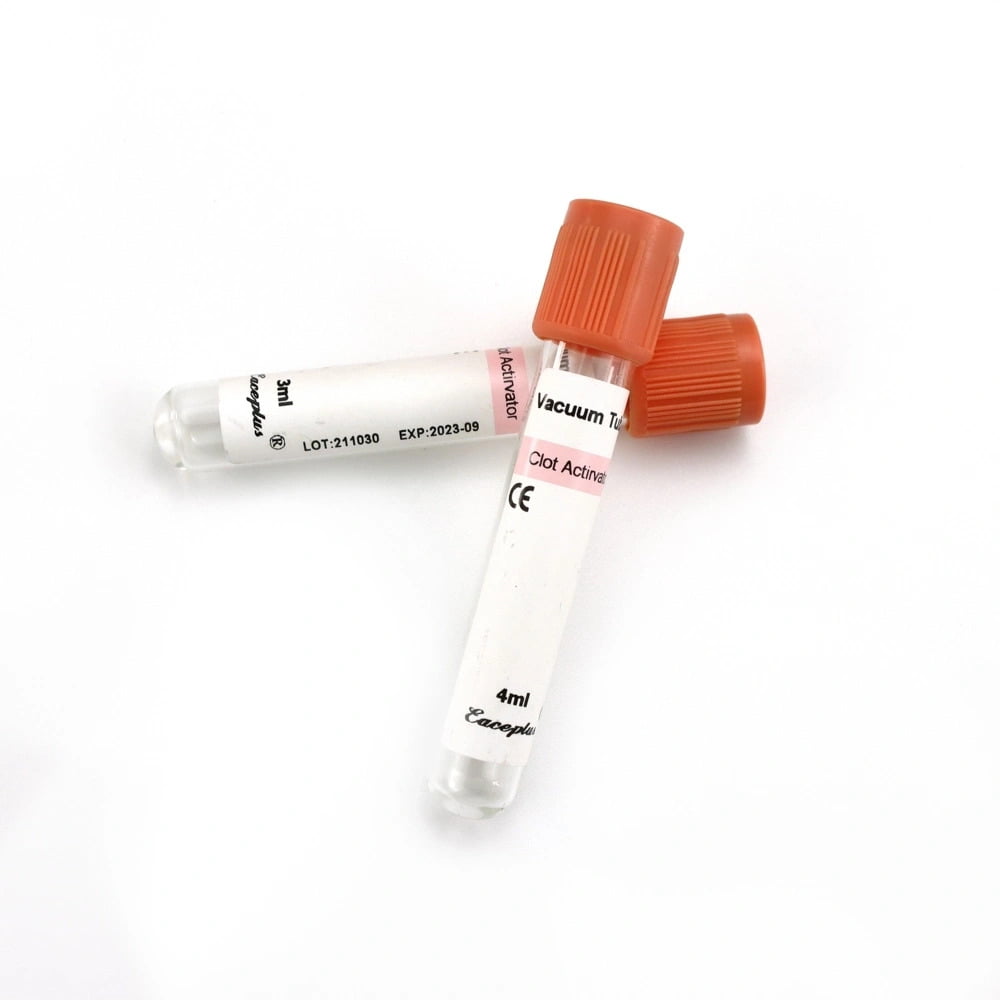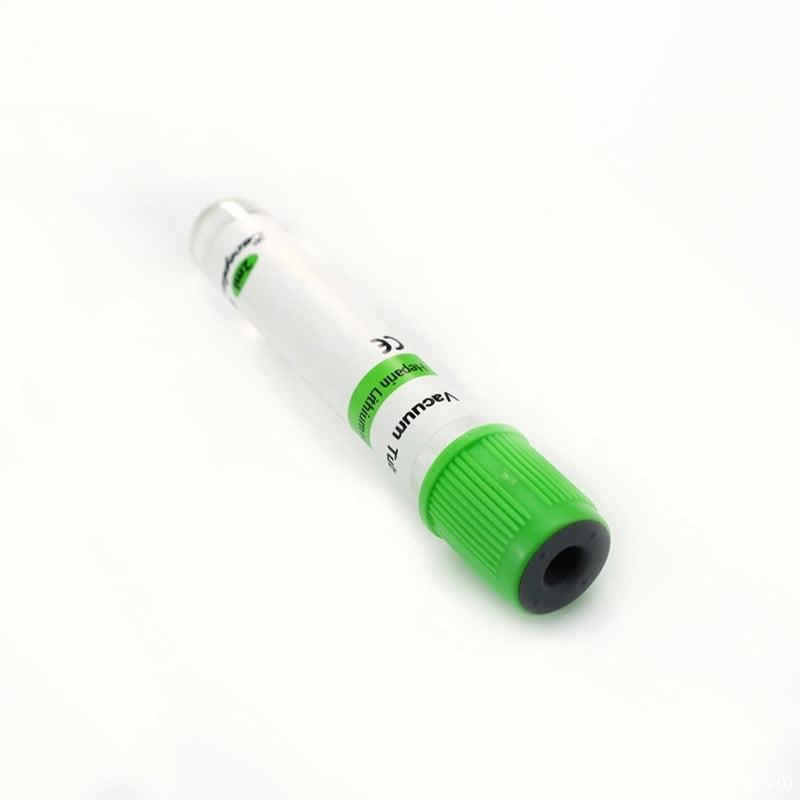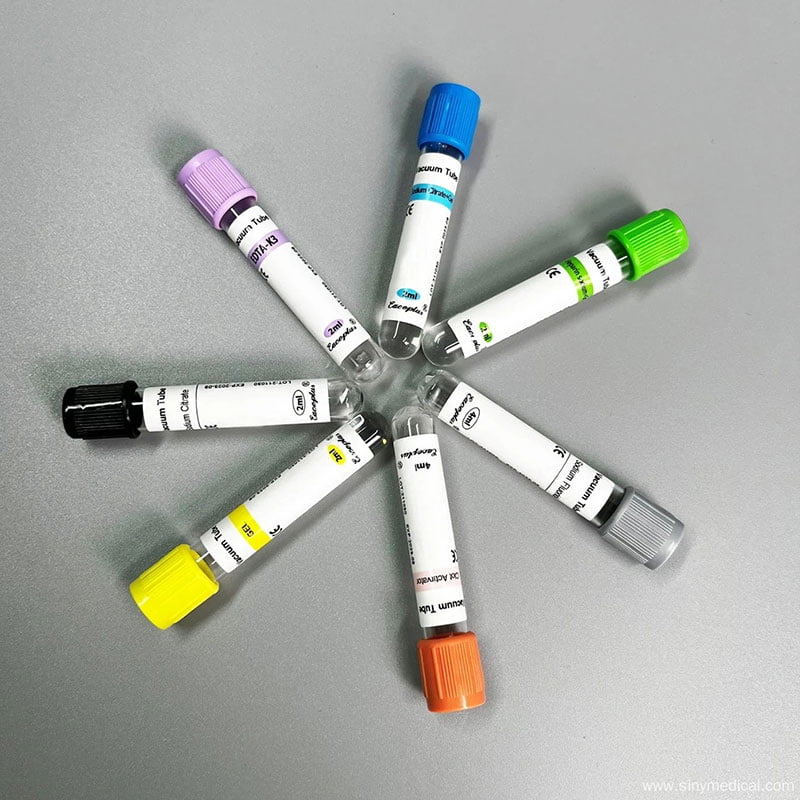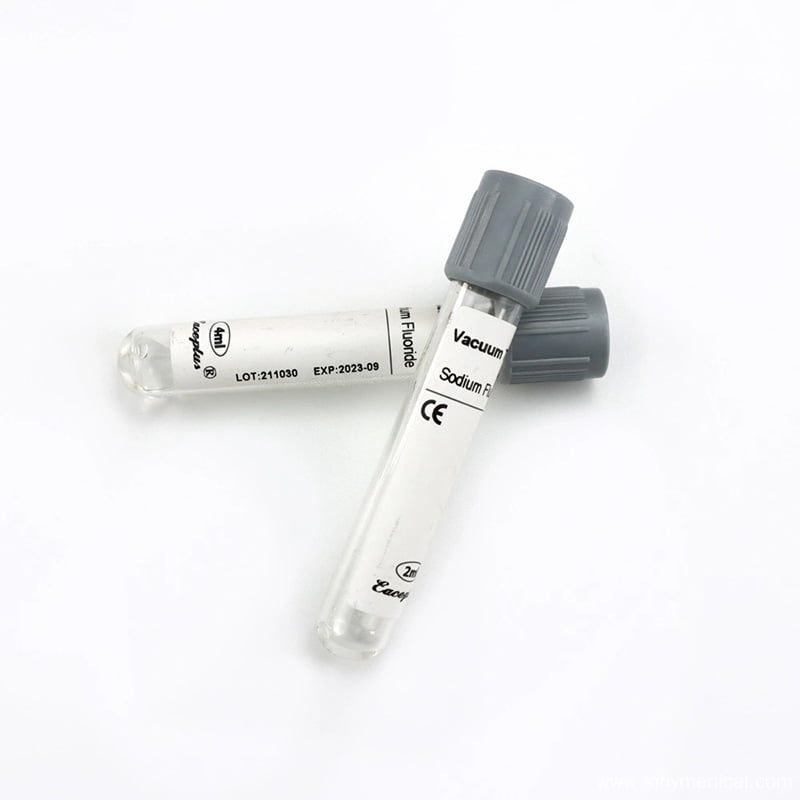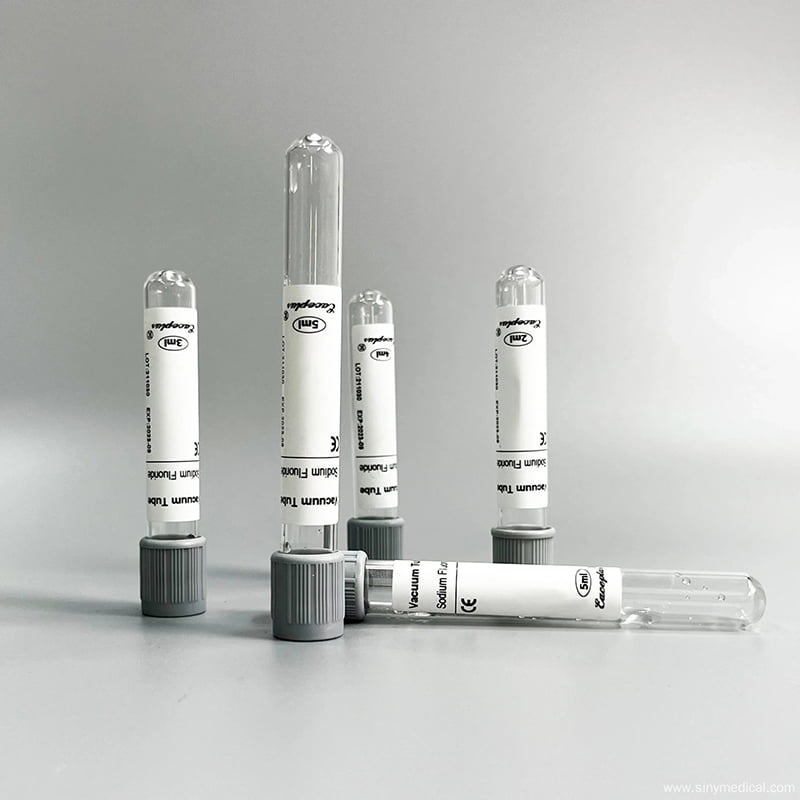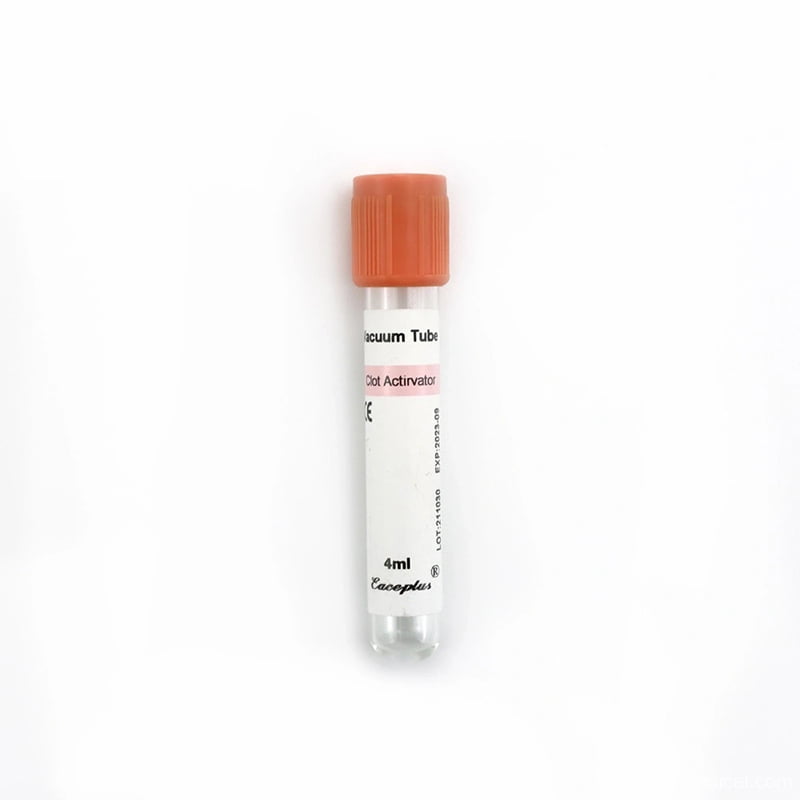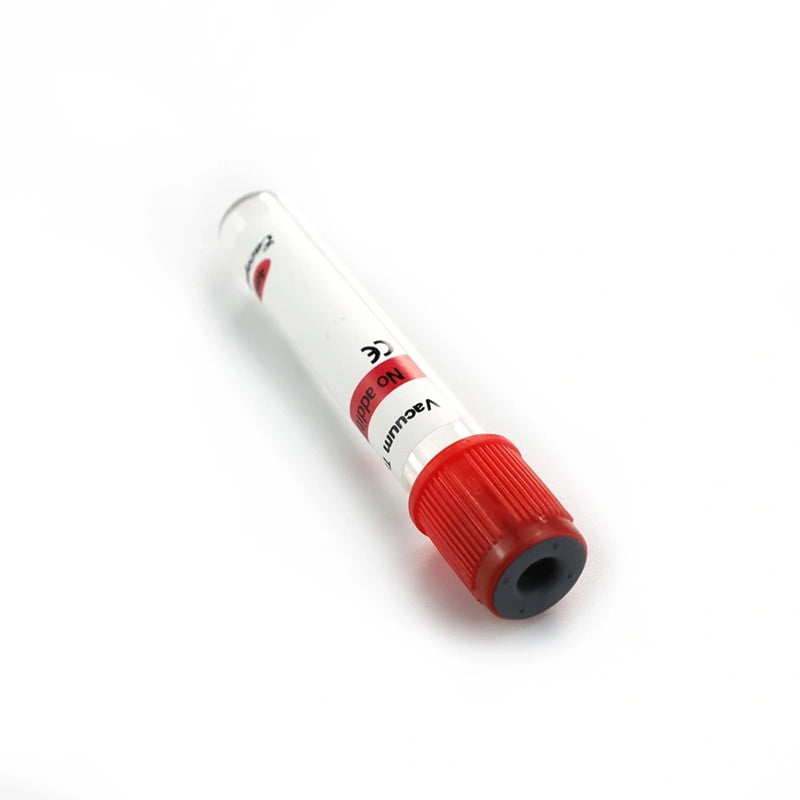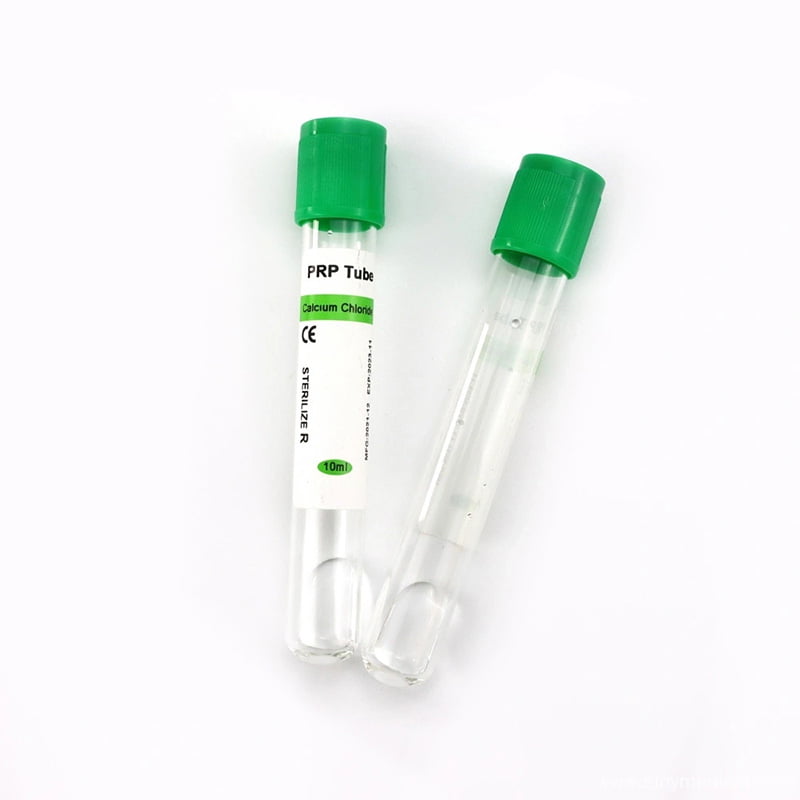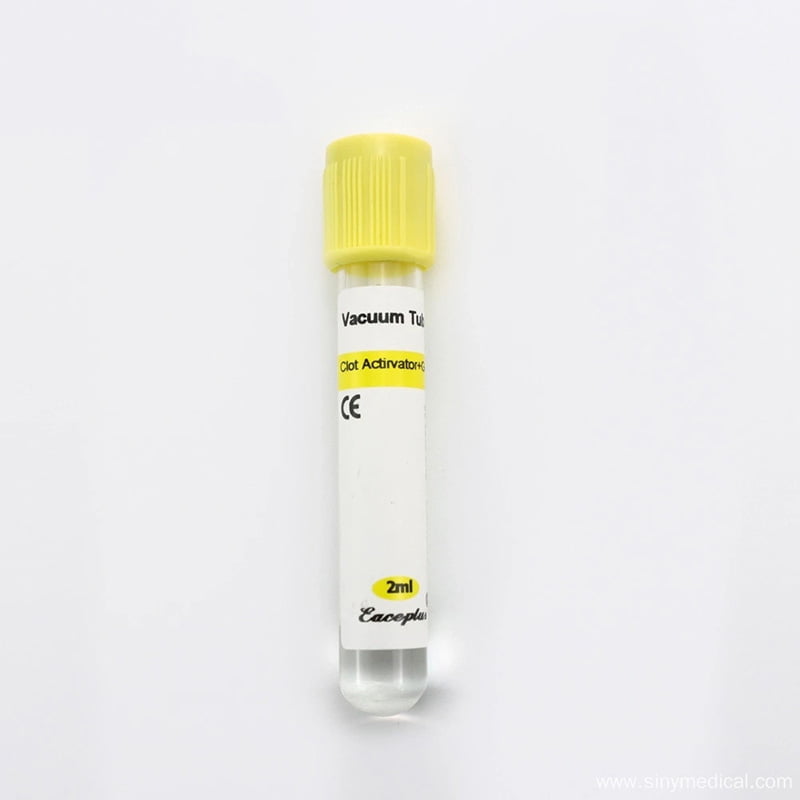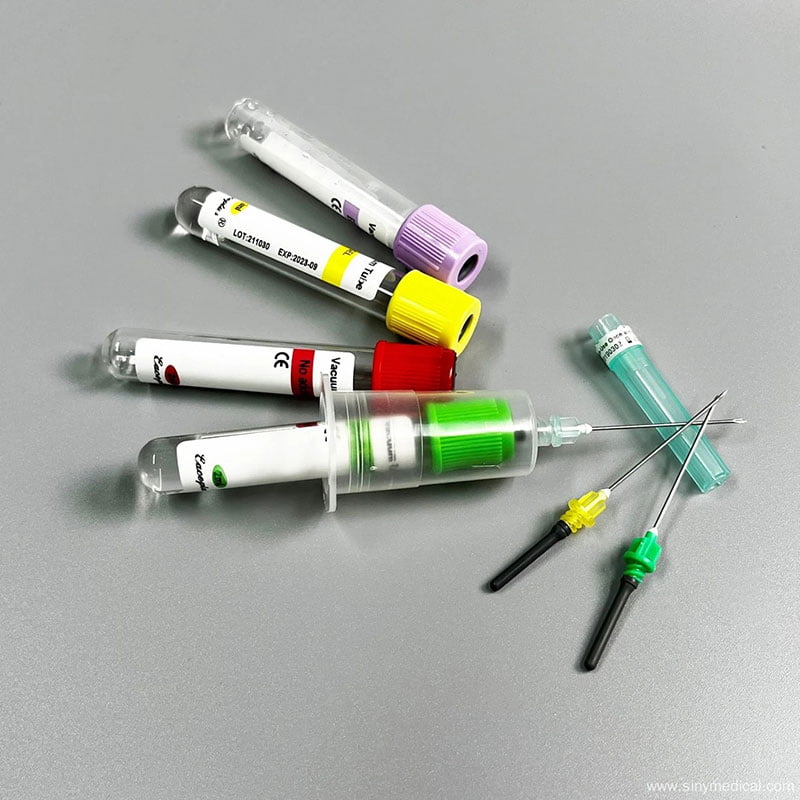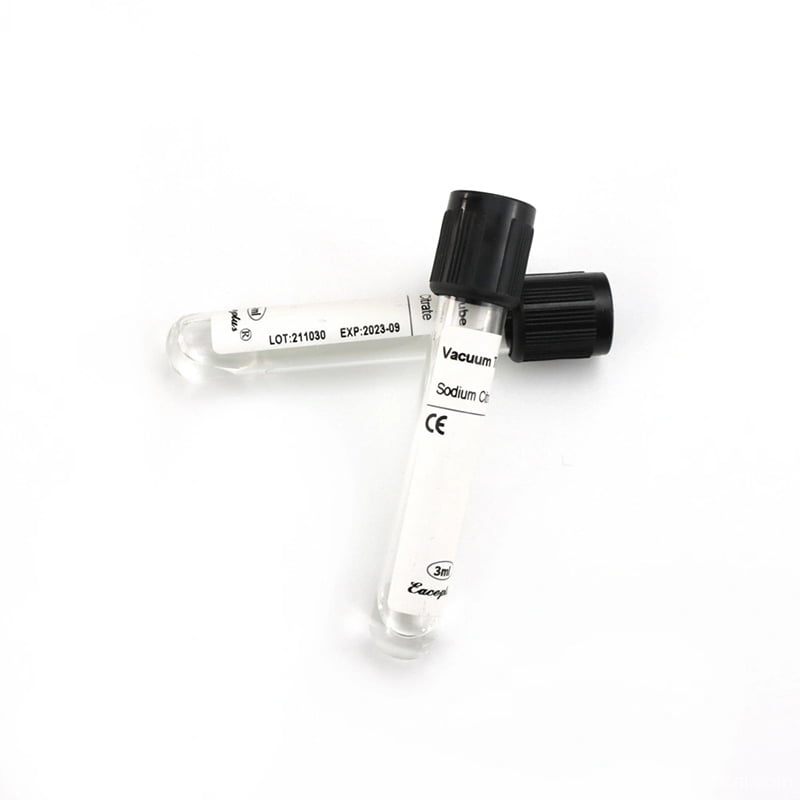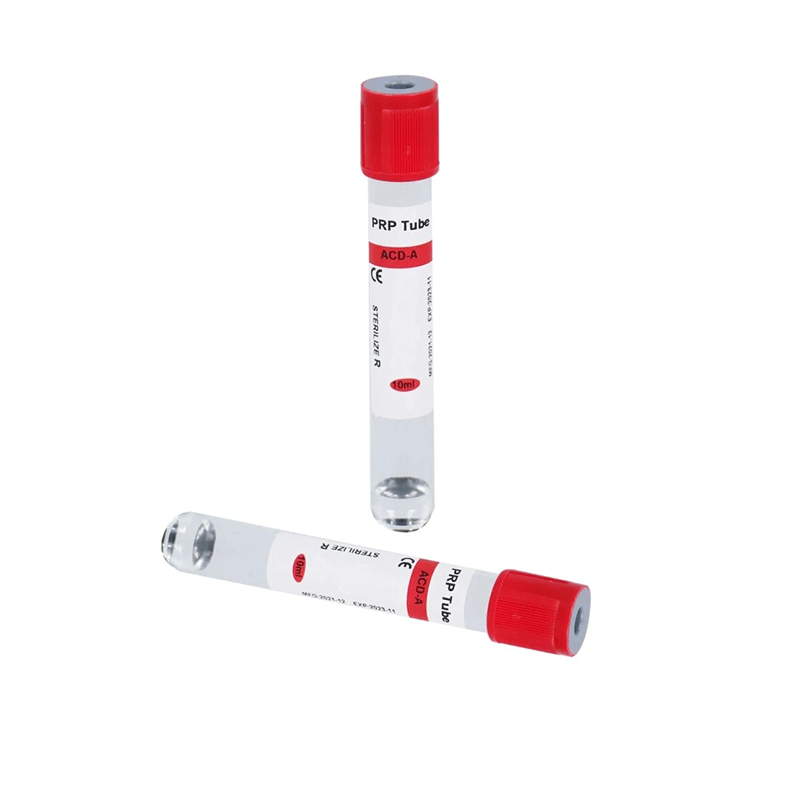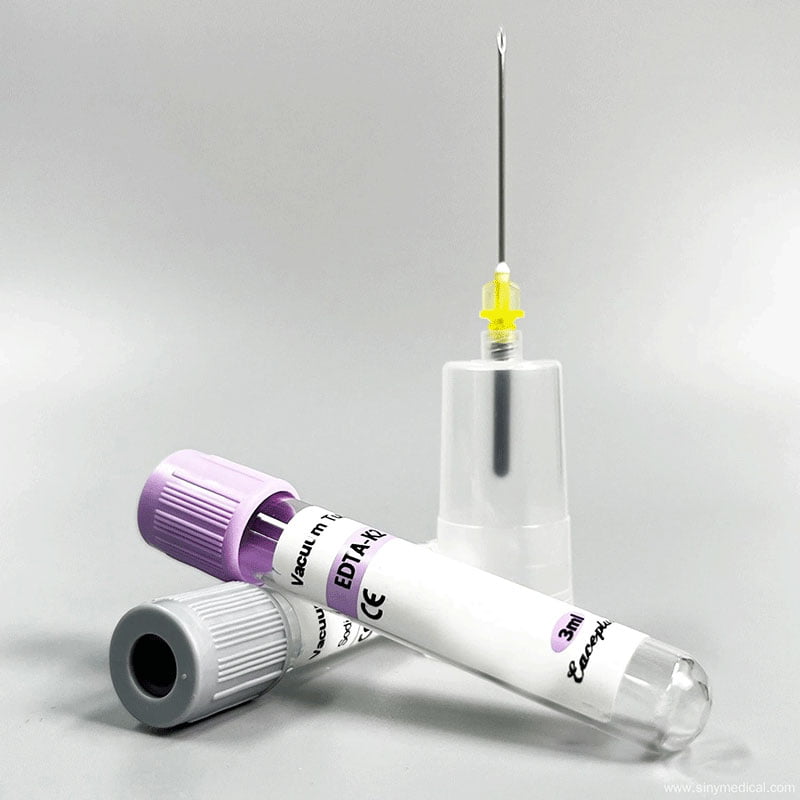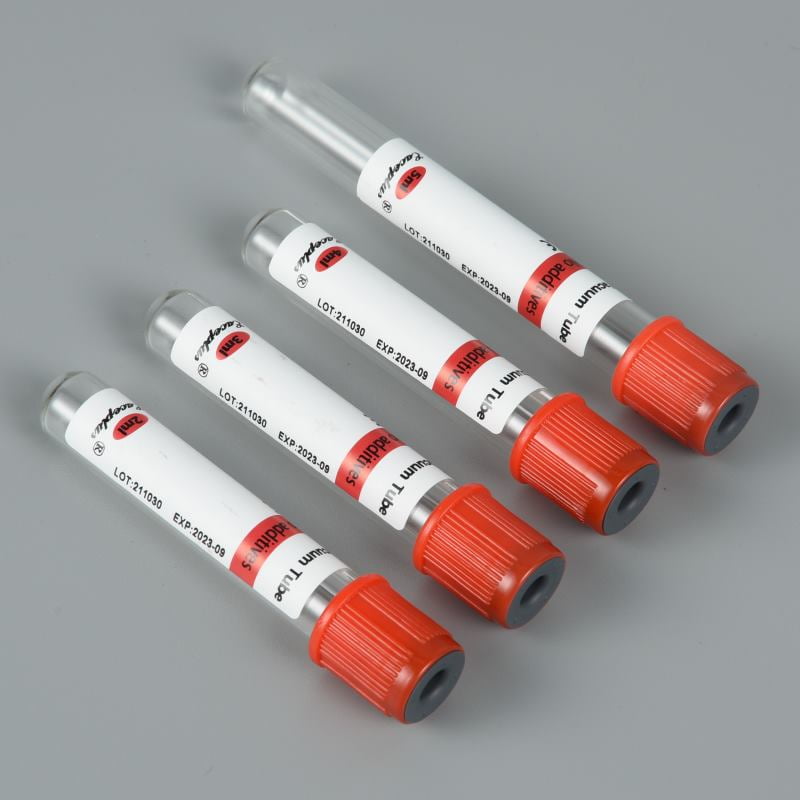A blood collection tube is an essential tool in the medical field, making it easier to collect, process, and analyze blood samples for diagnostics and research. Healthcare professionals must understand the different types of blood collection tubes to ensure accurate and reliable test results. In this comprehensive guide, we will explore various blood collection tube types, their components, applications, and best practices for collection and handling.
Table of Contents
- 1 What is a blood collection tube?
- 2 Types of Blood Collection Tubes
- 3 Sodium oxalate/sodium fluoride blood glucose test tube
- 4 Best Practices for Blood Collection
- 5 Final Thoughts
- 6 FAQs:
- 6.1 Why are there different types of blood collection tubes?
- 6.2 Can blood collection tubes affect test results?
- 6.3 How should I store blood collection tubes?
- 6.4 What is a serum tube, and what is its purpose?
- 6.5 What are clot activator tubes?
- 6.6 What is sodium citrate, and why is it used in blood collection tubes?
- 6.7 What is an EDTA tube?
What is a blood collection tube?
Sinymedical blood collection tubes are containers used to collect and store blood samples. They contain additives that help maintain the integrity of the sample and help the blood sample clot. The different types of blood collection tubes include vacuum tubes, serum tubes, and capillary tubes.
Types of Blood Collection Tubes
A patient’s blood is often examined in the initial phase of disease screening. Blood collection tubes are used to collect blood from patients. However, there are many different types of blood collection tubes.
Red blood collection tube/serum tube
Serum tubes facilitate the separation of serum from whole blood in laboratory settings. These tubes contain a clot activator, typically a mixture of sodium citrate, calcium chloride, and a gel-like substance
Blood collection tubes without anticoagulants, which are also known as biochemical tubes, have an even coating of agents to prevent hanging, which is primarily used for blood biochemistry.
The labels on ordinary serum tubes and fast serum tubes will mark them with or without procoagulant, or distinguish the two differences using red and orange colors. Procoagulant accelerates blood clotting.
| Volume/ml | Size/mm | Additive | Separator | Material | Cap Color | Closure |
| 2ml | 13X75 | Clot Activator | Gel | PET/GLASS | Gold Top Tube | Safety Cap+Rubber or Rubber Stopper |
| 3ml | 13X75 | Clot Activator | ||||
| 4ml | 13X75 | Clot Activator | ||||
| 5ml | 13X75 | Clot Activator | ||||
| 6ml | 13X100 | Clot Activator | ||||
| 7ml | 13X100 | Clot Activator | ||||
| 8ml | 16X100 | Clot Activator | ||||
| 9ml | 16X100 | Clot Activator | ||||
| 10ml | 16X100 | Clot Activator | ||||
| If You Need a Customized Vacuum Blood Collection Tube Please Contact Us | ||||||

Green heparin tubes
Heparin tube, an anticoagulant naturally occurring in the blood, inhibits the formation of blood clots by inhibiting thrombin and factor Xa. Heparin tubes contain heparin, a naturally occurring anticoagulant. They are commonly used for plasma collection and various chemistry tests, including electrolyte panels and renal function tests.
| Volume/ml | Size/mm | Additive | Separator | Material | Cap Color | Closure |
| 2ml | 13X75 | Lithium Heparin / Sodium Heparin | Gel or Not Add | PET/GLASS | Green Top Tube | Safety Cap+Rubber or Rubber Stopper |
| 3ml | 13X75 | Lithium Heparin / Sodium Heparin | ||||
| 4ml | 13X75 | Lithium Heparin / Sodium Heparin | ||||
| 5ml | 13X75 | Lithium Heparin / Sodium Heparin | ||||
| 6ml | 13X100 | Lithium Heparin / Sodium Heparin | ||||
| 7ml | 13X100 | Lithium Heparin / Sodium Heparin | ||||
| 8ml | 16X100 | Lithium Heparin / Sodium Heparin | ||||
| 9ml | 16X100 | Lithium Heparin / Sodium Heparin | ||||
| 10ml | 16X100 | Lithium Heparin / Sodium Heparin | ||||
| If You Need a Customized Vacuum Blood collection tube, Please Contact Us | ||||||

Purple blood collection tube EDTA tube
EDTA (Ethylenediaminetetraacetic acid) tubes contain EDTA as an anticoagulant. EDTA chelates calcium ions, thereby inhibiting clotting factors and preventing coagulation. These tubes primarily serve hematological studies, including EDTA tube blood cell counting, hemoglobin estimation, and blood smear examination.
| Volume/ml | Size/mm | Additive | Separator | Material | Cap Color | Closure |
| 2ml | 13X75 | EDTA K2 / EDTA K3 | / | PET/GLASS | Purple Cap Tube | Safety Cap+Rubber or Rubber Stopper |
| 3ml | 13X75 | EDTA K2 / EDTA K3 | / | |||
| 4ml | 13X75 | EDTA K2 / EDTA K3 | / | |||
| 5ml | 13X75 | EDTA K2 / EDTA K3 | / | |||
| 6ml | 13X100 | EDTA K2 / EDTA K3 | / | |||
| 7ml | 13X100 | EDTA K2 / EDTA K3 | / | |||
| 8ml | 16X100 | EDTA K2 / EDTA K3 | / | |||
| 9ml | 16X100 | EDTA K2 / EDTA K3 | / | |||
| 10ml | 16X100 | EDTA K2 / EDTA K3 | / | |||
| If You Need a Customized Vacuum Blood collection tube, Please Contact Us | ||||||
Sodium citrate blood collection tube
3.2% or 3.8% sodium citrate (sodium citrate), please collect. After blood collection, invert and mix 5-8 times. The anticoagulant dilutes the blood at a ratio of 1:9.
Sodium citrate tubes contain sodium citrate, an anticoagulant that binds calcium ions and inhibits clotting factors. These tubes are essential for coagulation tests, such as prothrombin time (PT) and activated partial thromboplastin time (aPTT), which assist in the diagnosis of bleeding disorders and monitor anticoagulant therapy.
| Volume/ml | Size/mm | Additive | Separator | Material | Cap Color | Closure |
| 2ml | 13X75 | 3.2% Sodium Citrate | Gel or Not Add | PET/GLASS | Blue Top Tube | Safety Cap+Rubber or Rubber Stopper |
| 3ml | 13X75 | 3.2% Sodium Citrate | ||||
| 4ml | 13X75 | 3.2% Sodium Citrate | ||||
| 5ml | 13X75 | 3.2% Sodium Citrate | ||||
| 6ml | 13X100 | 3.2% Sodium Citrate | ||||
| 7ml | 13X100 | 3.2% Sodium Citrate | ||||
| 8ml | 16X100 | 3.2% Sodium Citrate | ||||
| 9ml | 16X100 | 3.2% Sodium Citrate | ||||
| 10ml | 16X100 | 3.2% Sodium Citrate | ||||
| If You Need a Customized Vacuum Blood collection tube, Please Contact Us | ||||||
Sodium oxalate/sodium fluoride blood glucose test tube
Sodium fluoride, potassium oxalate/sodium fluoride, + sodium heparin are additives in the tube. As a weak anticoagulant, sodium fluoride prevents blood glucose degradation. Within 23 days, 4mg of the mixture of sodium fluoride + potassium oxalate/sodium fluoride + sodium heparin can prevent blood coagulation and sugar decomposition.
| Volume/ml | Size/mm | Additive | Separator | Material | Cap Color | Closure |
| 2ml | 13X75 | Sodium Fluoride + Heparin Sodium Sodium Fluoride + EDTA Sodium Fluoride + Potassium Oxalate | / | PET/GLASS | Gray Top Tube | Safety Cap+Rubber or Rubber Stopper |
| 3ml | 13X75 | |||||
| 4ml | 13X75 | |||||
| 5ml | 13X75 | |||||
| 6ml | 13X100 | |||||
| 7ml | 13X100 | |||||
| 8ml | 16X100 | |||||
| 9ml | 16X100 | |||||
| 10ml | 16X100 | |||||
| If You Need a Customized Vacuum Blood collection tube, Please Contact Us | ||||||
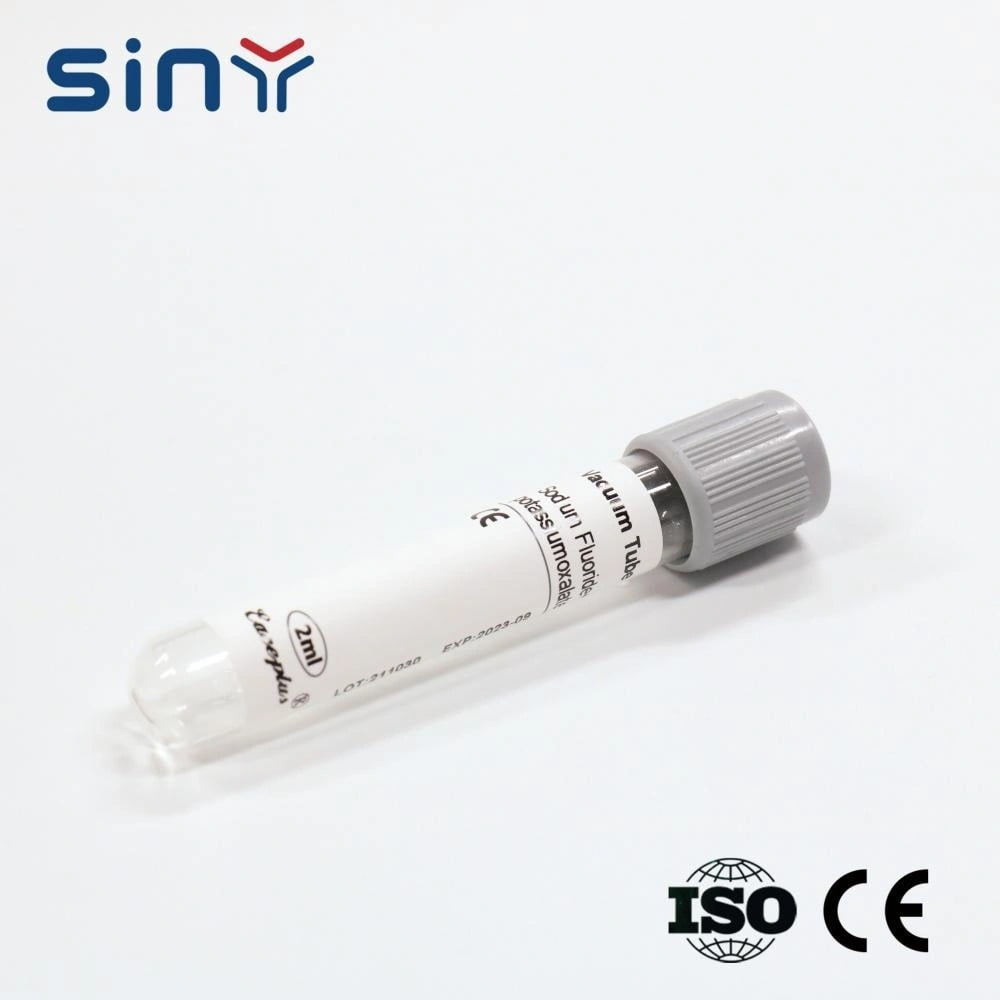
Clot Actirvator Coagulant Tube
The Clot Activator Coagulant Tube (CAT) actively dissolves blood clots. It inserts into the body through a small incision and emits an electrical charge, which dissolves the clot.
| Volume/ml | Size/mm | Additive | Separator | Material | Cap Color | Closure |
| 2ml | 13X75 | Clot Activator | / | PET/GLASS | Orange Cap Tube | Safety Cap+Rubber or Rubber Stopper |
| 3ml | 13X75 | Clot Activator | / | |||
| 4ml | 13X75 | Clot Activator | / | |||
| 5ml | 13X75 | Clot Activator | / | |||
| 6ml | 13X100 | Clot Activator | / | |||
| 7ml | 13X100 | Clot Activator | / | |||
| 8ml | 16X100 | Clot Activator | / | |||
| 9ml | 16X100 | Clot Activator | / | |||
| 10ml | 16X100 | Clot Activator | / | |||
| If You Need Customized Vacuum Blood collection tube, Please Contact Us | ||||||

ESR Tube
ESR Tube, commonly known as erythrocyte sedimentation rate, specifically refers to the rate at which red blood cells in anticoagulated blood settle in a specific ESR Tube in a certain unit of time. I
ESR Tube is a type of blood test that measures the amount of electrolytes in the blood. Electrolytes are essential because they help to regulate the body’s fluid balance, nerve and muscle function, and heart and kidney function.
| Volume/ml | Size/mm | Additive | Separator | Material | Cap Color | Closure |
| 1.6ml / 1.28ml | 8×120 | 3.8% Sodium Citrate | Gel or Not Add | PET/GLASS | Black Top Tube | Safety Cap+Rubber or Rubber Stopper |
| 2ml | 13X75 | 3.8% Sodium Citrate | ||||
| 3ml | 13X75 | 3.8% Sodium Citrate | ||||
| 4ml | 13X75 | 3.8% Sodium Citrate | ||||
| 5ml | 13X75 | 3.8% Sodium Citrate | ||||
| 6ml | 13X100 | 3.8% Sodium Citrate | ||||
| 7ml | 13X100 | 3.8% Sodium Citrate | ||||
| 8ml | 16X100 | 3.8% Sodium Citrate | ||||
| 9ml | 16X100 | 3.8% Sodium Citrate | ||||
| 10ml | 16X100 | 3.8% Sodium Citrate | ||||
| If You Need Customized Vacuum Blood collection tube, Please Contact Us | ||||||

Best Practices for Blood Collection
The integrity of blood samples and the reliability of test results depend on healthcare professionals adhering to strict protocols during blood collection. Identifying the patient, selecting the vein, and preparing the site of collection are crucial pre-collection procedures for minimizing errors and ensuring patient safety. Maintaining sample integrity and avoiding pre-analytical errors requires proper handling and storage techniques, including labeling, transportation, and temperature control.
Final Thoughts
serum tubes are an essential tool for a variety of laboratory procedures. They provide a safe, reliable, and efficient way to separate serum from other components of a sample, allowing for accurate measurement and analysis of the serum.
- Indispensable tools in medical diagnostics.
- Facilitating collecting.
- Preserving.
- Processing blood samples for laboratory testing.
Understanding the different types of blood collection tubes and their functions is crucial for healthcare professionals to ensure accurate and reliable test results. This will aid in patient diagnosis and treatment.
FAQs:
Why are there different types of blood collection tubes?
Different tubes contain specific additives to suit various laboratory tests and preserve blood samples appropriately.
Can blood collection tubes affect test results?
Improper tube selection or handling can lead to inaccurate test results, emphasizing the importance of proper tube selection and technique.
How should I store blood collection tubes?
Store tubes according to manufacturer instructions to maintain the integrity of additives and ensure accurate test results.
What is a serum tube, and what is its purpose?
A serum tube, also known as a serum separator tube (SST), contains a gel separator that separates serum from blood cells after centrifugation. It aims to obtain serum for various laboratory tests without interfering with cellular components.
What are clot activator tubes?
Clot activator tubes contain additives that promote blood clotting, facilitating faster serum separation. Commonly, laboratories use them in chemistry tests that require serum samples for analysis.
What is sodium citrate, and why is it used in blood collection tubes?
Sodium citrate is an anticoagulant that binds calcium ions, preventing blood clotting. Blood collection tubes, such as citrate tubes, are used it for conducting coagulation studies and monitoring patients on anticoagulant therapy.
What is an EDTA tube?
An EDTA tube contains ethylenediaminetetraacetic acid (EDTA), an anticoagulant by chelating calcium ions.

